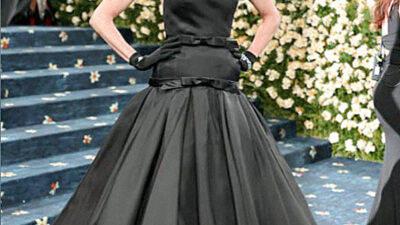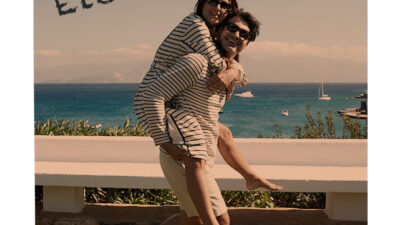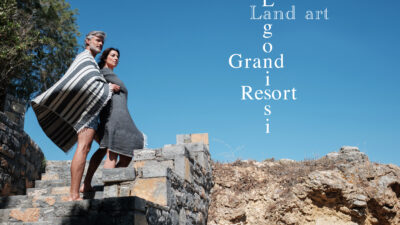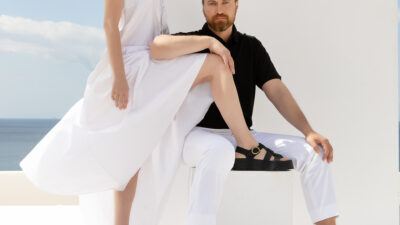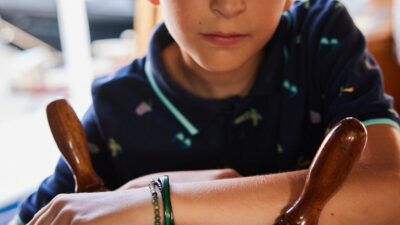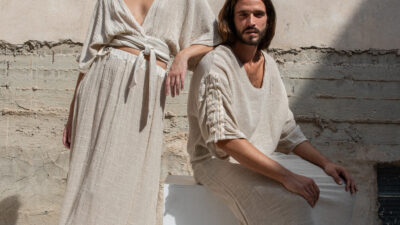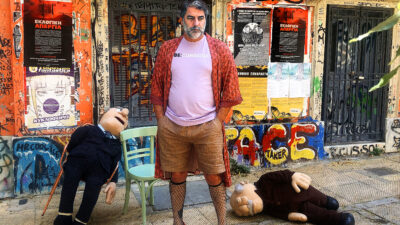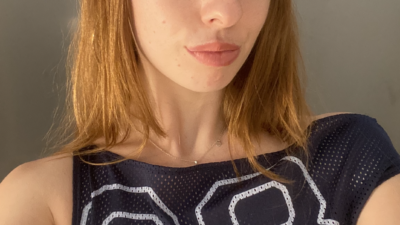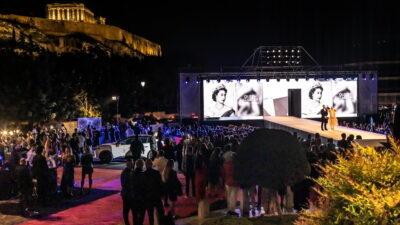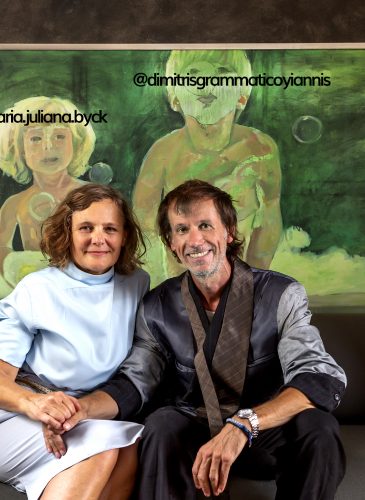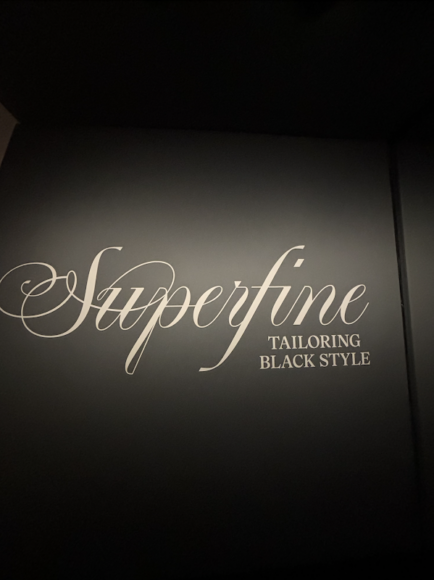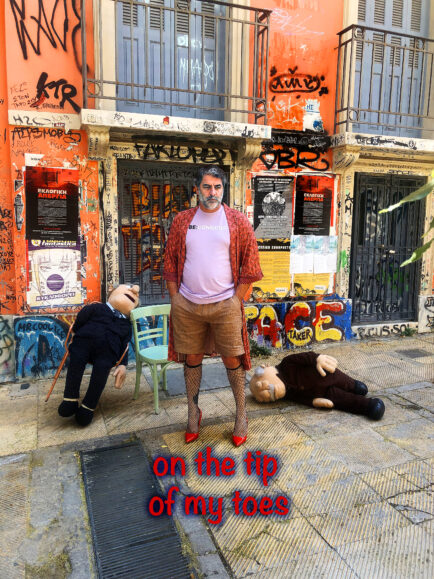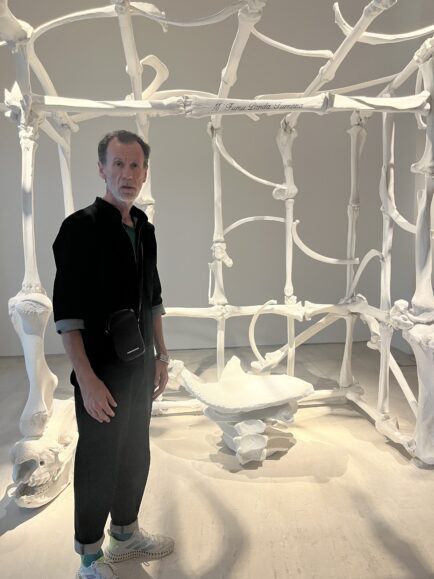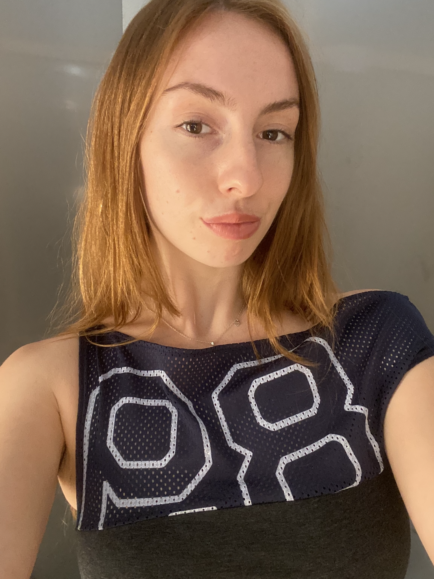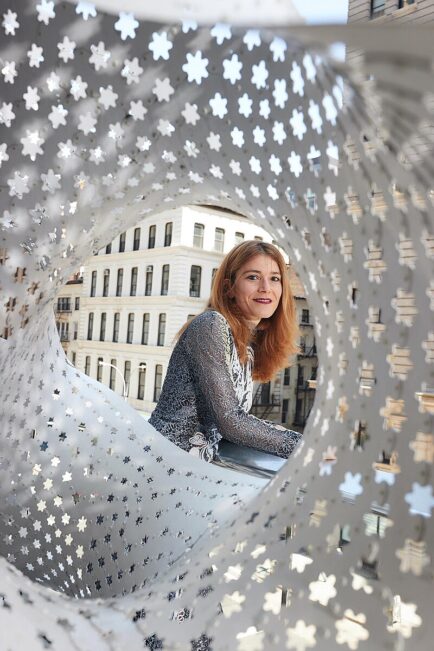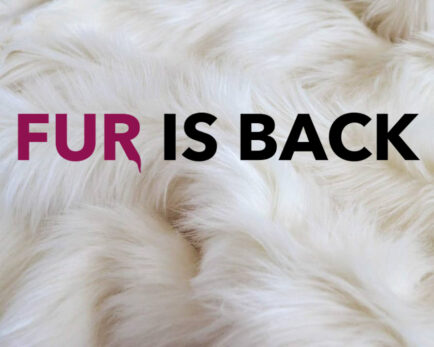Dimitris: What is your project for the refugees in Athens? what have you learnt from Zoristirio (i mean something special that impressed you) Tell me some impressions of giving to refugees for free for the last 2 years in Athens
Maria: I have been volunteering at free shops, shops where everything Is completely free. The original idea for free shops came out of the 1960s in San Francisco, as a way to counteract overproduction and overconsumption, through the promotion of sharing and reuse. Now these free shops meet another need, to provide clothing to those who have come to Athens after losing practically everything. At both free shops, Zoristirio and Khora, we give away clothes, shoes, household linens and toiletries to anyone who needs or wants them, mainly to asylum seekers waiting in Athens, but also to homeless, artists, unemployed and anti-consumerist. Everything in the shops is donated. So, what impressed me the most was how much excess clothing people have while at the same time there are so many people who have practically nothing. Over time it was easy to see what clothing people really needed, shoes for example are always in high demand. It also became clear those things that no one seemed to want, even if it was completely free. In particular, I could see that no one wanted the button-down shirts, jackets, pants and ties, the typical business man suit. Despite being high quality items, in perfect condition, the suits remained in the shop and continued to pile up.
Dimitris: Could you remind me about the Refashion show for a post capitalist world?
Maria: The fashion show was an artistic experiment to see if creative reuse—often seen as a boring, old fashioned concept or one lacking in contemporary aesthetic value—can converge with the fashion world. As I see it, global waste, environmental destruction and mass displacement of people are outcomes of capitalism, of which the business man suit is the iconic emblem. The enormity of the problems facing the world can be overwhelming. The fashion industry is one of the biggest pollutants on the planet, according to some accounts, it second only to the oil industry in environmental damage. There are over 65 million refugees in the world right now and the number continues to grow. From these global crisis, the concept for Refashion: for a post capitalist world fashion show was born. It was a project to see if the excess, violence, irreversible damage and waste of the current way of doing things could be transformed, even if just in a very small way. The idea was to create fashion by turning the business suit, and thus metaphorically the traditional business world, inside out and upside down. To transform the ways we see something old, useless and destructive into something constructive, beautiful, inspiring and useful.
Dimitris: Do you have any kind of name for your clothes?
Maria: No — not yet! It is still at the beginning of taking form. Can you tell us why you transform them since you could deliver them without any fatique as used to be ? Transforming the clothes gives them a new value, in a new context. The business man suits are made out of very high quality fabrics: fine wools, thick cottons and colourful silks- yet they are only appropriate for specific people, in a specific setting. Through transformation these same items can be used in many ways, by many people. As we all know, things go out of fashion very quickly to keep the market thriving through the desire for new looks, to be on the cutting edge. So lets find a way bring together our desire for fashion with our desire to protect the environment, to create new fashion out of the old so that we do not continue to destroy the planet and each other. It is fun and creative as well, each look is unique, it is something everyone can do to express themselves.
Dimitris: what you would change in Greek mentality and behaviour ?
Maria: It is hard for me to say what I would change in Greek mentality and behaviour as this is a very complex thing which I don’t feel knowledgeable enough to discuss. One thing I know is that creative reuse has been a part of Greek culture for a long time— many people have told me about how their mothers and grandmothers never threw anything away and found ways to reuse almost everything. But in recent years reuse has become less a part of Greek culture as people’s desire for the new has been carefully cultivated, mainly through media and advertising. In general, I would like to people to see themselves as part of a system that is extremely destructive and controlling of both our desires and fears. That we need to counteract this in ourselves. So in the particular instance of the fashion industry, I would like to change the mentality and behaviour of people, to see how their desire for a new look is connected to the many global crisis of today, including the exploitation of people in sweatshops and cotton fields, the toxic chemicals in water system from the dying of fabrics or fertilisers and the waste that leads to overflowing landfills and polluted oceans. The clothes you wear is your message to the world and so it is important to choose them thoughtfully within this context. Design inspired reuse is an alternative fashion option.
Dimitris: What do you really fight for?
Maria:I am fighting my own tendency to replicate the system that I know is so destructive. To constantly monitor and understand my own behaviour and mentality so that I am a part of changing things for the better rather than perpetuating a way of being that harms so many. is the Future dark? The future is dark only if we allow it to be, if we don’t work together to bring in the light. As I hope creative reuse demonstrates, there are ways to shift something that is negative into something that is positive, inspiring and full of hope. What are your future plans? My plan is to take what was basically an artistic experiment to the next level. Working with refugees, asylum seekers and unemployed Greeks over the past two years, I see that there are many creative, skilled and experienced, hard working, intelligent people who don’t want to be dependent on systems in which they have little agency and control. As a result, I would like to be part of a collective in which we can take creative reuse to the next level. The plan is to become a viable business, so that we can create good jobs and economic self-sufficiency while reducing waste by creating high-quality, unique designer clothes and household items. To start this project we will need a lot of good will and the right configuration of partners and resources. In addition to contributions of clothing and sewing machines and space to work, we are looking for people who are skilled and experienced in the various aspects of the textile industry, including production, marketing and distribution. I really hope that people reading this article will be inspired to work with us and support this next level of the project

